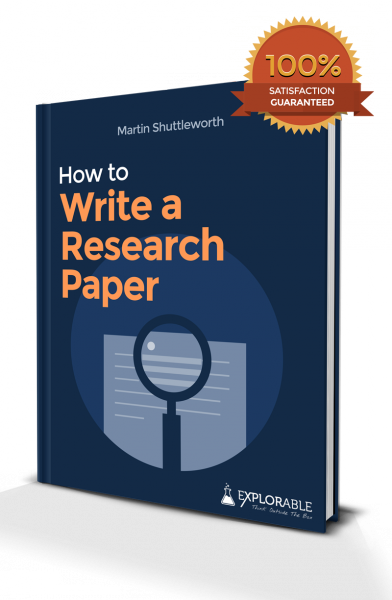
- Home >
- Publication Bias
Publication Bias
In many research fields, private funding for research is fueling a growing problem, the tendency towards publication bias.
This article is a part of the guide:
Browse Full Outline
Publication bias is where researchers publish only favorable results, and it can have far-reaching consequences.
Pharmaceutical companies, for example, are notorious for manipulating the data in this way, potentially very dangerous when the lives of patients are at risk.
When a medical company has spent tens or hundreds of millions of dollars on research, it is tempting to bury any results that support the null hypothesis.
Publication bias is where researchers publish only favorable results, and it can have far-reaching consequences.
Pharmaceutical companies, for example, are notorious for manipulating the data in this way, potentially very dangerous when the lives of patients are at risk.
When a medical company has spent tens or hundreds of millions of dollars on research, it is tempting to bury any results that support the null hypothesis.
Unfortunately, pharmaceutical companies are businesses, attempting to maximize profits, and there is always the temptation to promote products, even when they have been shown to be ineffective or even potentially harmful.

The Language Barrier and Publication Bias
Another example of publication bias is caused by language difficulties, where papers written in another language often overlooked.
Famously, medical researchers in the English-speaking world often claimed that there was little empirical research into herbal medicines. This was not quite true, because German researchers have produced reams of papers about herbalism.
Other major languages, such as Russian, Chinese and Japanese are similarly overlooked, and this can have a real and marked effect upon meta-analyzes. With the rise of English as the language of science, as it is of business, such problems are becoming rarer, and major papers are often translated if the original researcher cannot speak English.
The File Drawer Problem and Publication Bias
It is tempting to place the blame for publication bias entirely upon rejection of papers by journals, but this is not always the case. Quite often, researchers are to blame for not releasing negative results.
Often, they do not wish to release negative results, because it may reflect badly on future grant applications, or they are aware of the mistakes that they made in procedure and have no wish to have their mistakes dissected by their peers. In other cases, they may have drifted onto other areas, or run out of funding halfway through.
For whatever reason, this can lead to many useful results becoming lost or disregarded.
External Funding, Negative Results and Publication Bias
One of the main sources of publication bias is caused by the problem of external funding. There is evidence that some fields of research, especially pharmaceutical studies, exert pressure on journals, and externally funded research is much more likely to be published in journals.
External donors are also more likely to bury negative results, meaning that a lot of useful research never reaches publication. This creates publication bias, and is something that researchers performing meta-analyses must be aware of.
Rejection of Manuscripts and Publication Bias
The final source of publication bias is rejection by journal editors and peer reviewers. Whilst most editors try to be impartial, they do have their own agendas. For example, their job is to ensure that papers are readable and well written.
A paper that has excellent results but does not pass the standards will be rejected.
In addition, duplicate research may be rejected, and this is a problem to meta-analysis, which relies upon statistical manipulations of all the relevant data.
Publication Bias – Avoiding the Worst Effects
Avoiding publication bias is an extremely difficult task, so any researcher performing a literature review, or statistical analysis of historical data, must take the effect into account.
In some ways, the internet is making the process easier, and there are more places for researchers to publish papers online. The cost of this is that there is a lot of substandard information that the researcher must wade through, making research a delicate balancing act.
Martyn Shuttleworth (Sep 9, 2009). Publication Bias. Retrieved Feb 27, 2026 from Explorable.com: https://explorable.com/publication-bias
You Are Allowed To Copy The Text
The text in this article is licensed under the Creative Commons-License Attribution 4.0 International (CC BY 4.0).
This means you're free to copy, share and adapt any parts (or all) of the text in the article, as long as you give appropriate credit and provide a link/reference to this page.
That is it. You don't need our permission to copy the article; just include a link/reference back to this page. You can use it freely (with some kind of link), and we're also okay with people reprinting in publications like books, blogs, newsletters, course-material, papers, wikipedia and presentations (with clear attribution).
This article is a part of the guide:
Browse Full Outline
Footer bottom




